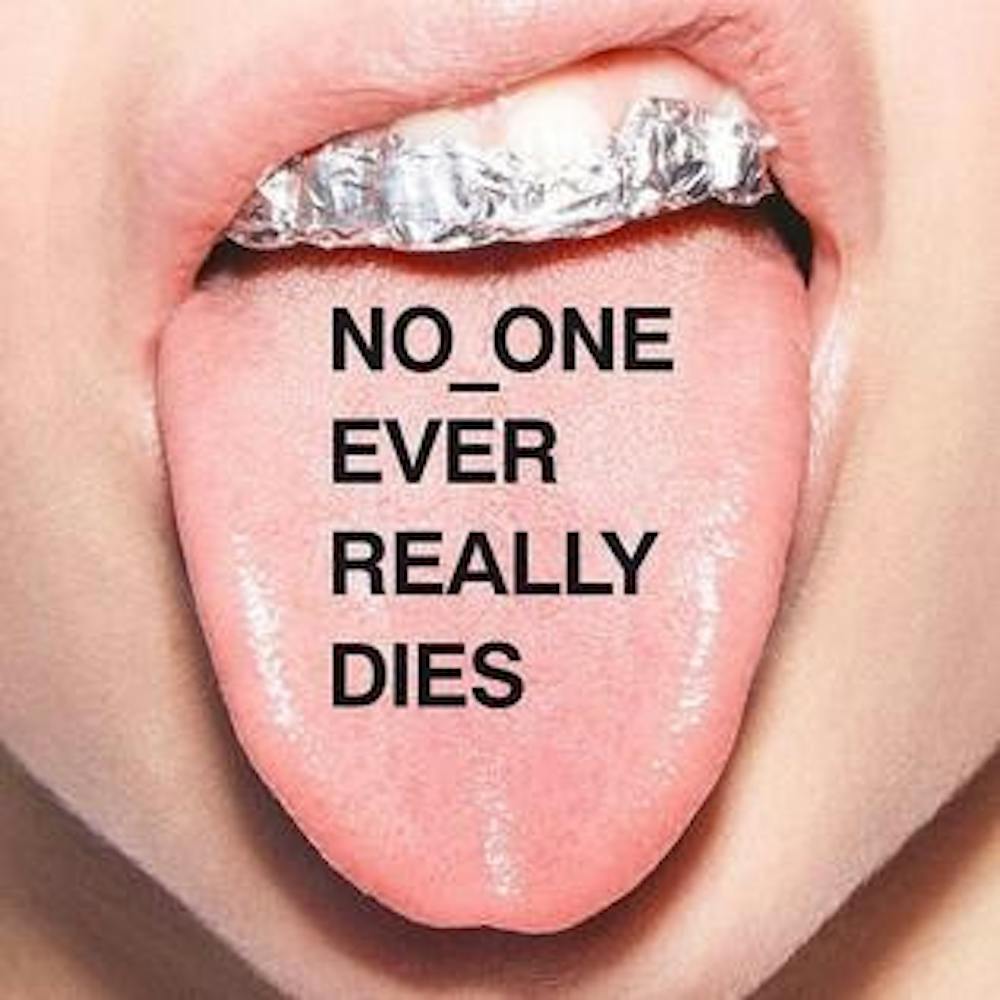After almost a decade-long hiatus, N.E.R.D — the ground-breaking early 2000s hip-hop group and star-making vehicle for Pharrell Williams — has finally made its eagerly awaited return with full length studio album “NO_ONE EVER REALLY DIES.” However, calling this latest work a N.E.R.D album might be a slight misnomer, given that this project embodies the Pharrell Williams solo oeuvre much more so than any of the group’s previous releases. After all, Pharrell’s vocals are front and center in most of the songs, Pharrell spearheaded the production of the project and it is as a direct result of Pharrell’s continued cultural relevance that a panoply of well-known names in current popular music are features on the album’s track list.
The featured artists provide both the album’s best and worst moments. In “Lemon,” Rihanna is a revelation with her fiercely delivered and uniquely cadenced rapping utilized in tandem with a prototypically playful and witty Pharrell-written verse. It is certainly to Pharrell’s credit that he managed to recognize the compatibility of Rihanna’s transcendent voice with his lyrical and production style.
Another of the best moments on the album is Kendrick Lamar’s verse on “Don’t Do It!,” a “conscious rap” anthem written in honor of Keith Lamont Scott, a victim of police brutality who was killed in 2016. Unlike several of the other guest artists, Lamar’s superlative versatility as a rapper and socially conscious bent mesh perfectly with the concept of “NO_ONE EVER REALLY DIES,” even though the verse itself is a tragically brief 45 seconds or so.
Luckily for the listener, Lamar makes the most of this time, managing to cover a dizzying variety of race-related topics with blistering speed and impossible eloquence. There is also a second, significantly less engaging Lamar verse in the ninth track of the album, “Kites.” The track is hampered by clunky production and M.I.A.’s annoyingly repetitive hook, but is worth listening to overall.
Conversely, there are a number of featured artists on the album who feel mostly out of place. Ed Sheeran’s presence, for example, seems wholly unnecessary given how much his folky inclinations are juxtaposed with Pharrell’s hip-hop production. It also seems likely that Pharrell would have access to many vocalists who are stronger and better suited to a N.E.R.D project than Sheeran. However, in light of Pharrell’s role in producing Sheeran’s 2014 hit “Sing,” it’s possible that they have some kind of working relationship, making Pharrell go to Sheeran first for the feature.
A second seemingly alien inclusion is Gucci Mane on “Viola,” the album’s third track. Under normal circumstances, Gucci Mane tends to rap over slower, more bass heavy beats than Pharrell’s typical fare, something made unfortunately obvious on “Viola.” Gucci Mane’s vocal stylings sound garbled and cumbersome, disrupting the flow of the song.
Even more disruptive, and the album’s worst feature, is Future’s verse in “1000.” For some reason, Pharrell seems to have thought it necessary to significantly alter Future’s signature style of auto-tune on this track, transmuting Future’s baleful baritone into something unpleasantly saccharine. Of course, any song with two of the most lucrative and visible hip-hop acts of the last decade on it is going to be a hit, which is becoming the case with “1000” despite it being a weaker track.
Holistically speaking, N.E.R.D remains head-and-shoulders above most of the rest of the hip-hop community in terms of the sheer originality of its music, even with this being a barely above average entry in their discography. Regardless of his ability to successfully integrate other artists into his projects, Pharrell’s aptitude for blending genre elements of punk, hip-hop, funk and R&B into a coherent and highly listenable product remains second to none. As a rapper, Pharrell’s best moments come when he fully embraces his own whimsical instincts, as exemplified by his lyrical work on tracks such as the aforementioned “Lemon” and one of the four N.E.R.D solo tracks, “Deep Down Body Thurst”.
Unfortunately, the bright spots on “NO_ONE EVER REALLY DIES” are heavily diluted by Pharrell’s unfortunate and mostly half-hearted attempts at imposing a politically subversive narrative on the album. Over the last few years there have been a number of rappers who have created successful concept albums with a narrow political focus — Kendrick Lamar’s “To Pimp a Butterfly,” Vince Staple’s “Summertime 06” and Joey Bad A$$’s “All-Amerikkkan Bada$$” being just three prominent examples of this trend.
However, in the case of all well-received albums of this nature, the politics of the project are the main point. Throughout N.E.R.D’s press tour leading up to the release of “NO_ONE EVER REALLY DIES,” Pharrell and company have attempted to bill the album as being primarily political in nature, but the reality does not match up. At most, disaffection with the current political establishment and institutions is only intermittently alluded to on the album, adding little to the already-existing artistic conversations surrounding the issues. A more cynical listener might imagine that Pharrell is attempting to cash in on the “trendiness” of artistic protest statements over the last view years, although Pharrell’s committed political activism outside of music would probably suggest otherwise.
Luckily — for Pharrell, at least — the overall mediocrity of “NO_ONE EVER REALLY DIES” should do little to stymie his ongoing commercial success and substantial influence over pop culture. His track record is such that, even in cases where the product does not necessarily live up to the billing, the reputation for excellence surrounding the artist will ensure that not many listeners or critics will notice and even fewer will care.





